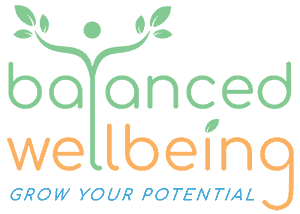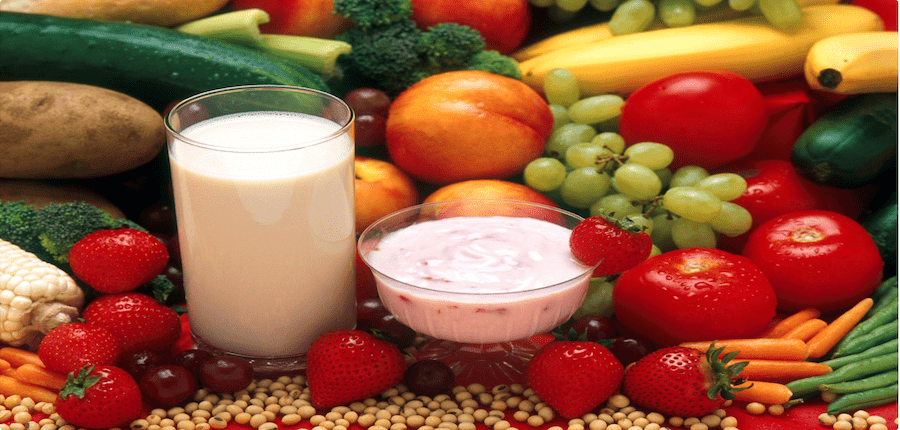With all the information about COVID-19 the last 18 months, my family members and I have been keeping our immune systems as strong as we can. This is something we do every year of course, but we’ve been more vigilant about it. Despite this, I still caught a cold in May that lasted weeks – it was not COVID-19, I got tested!!
I rarely catch anything, and never does a cold hang around for weeks. So, I looked at my lifestyle regime, wondering what could have depleted my immune system. I eat well, I take my supplements, I exercise nearly everyday, and I practice mindfulness. At the time I put it down to having had little contact with infections in 2020 due to lockdowns, hand washing, and masks. Although these are very important for infection control, it meant that my immune system didn’t get a chance to exercise fighting off bugs. Also, I was probably feeling rundown from not having had a holiday for a couple of years because of COVID-19. And, like many of you, emotional stress from lockdown fatigue due to a lack of social engagement. Yes, our immune system can be affected both from physical and emotional influences.
I’ve written about how stress and burnout affect us in the past. Here are some links to blogs on our website FYI
https://balancedwellbeingcentre.com.au/accept-adapt-to-beat-covid-19-burnout/
https://balancedwellbeingcentre.com.au/lifestyle-change/
Although I studied immunology at university, I can’t remember much of what we learnt – it was so long ago. So, I asked Eireann to do some digging so we could give you some general information. For those of you reading this who understand the immune system in a more comprehensive way, please excuse us if we have not done the topic justice. We would be happy to post some helpful feedback if you would like to send us some.
Our immune system’s primary, and very important, function is to provide a protective barrier against harmful pathogens and toxins in the environment, such as bacteria, parasites, fungi and viruses including Covid-19. In simple terms, your immune system is constantly searching for such invaders, which have antigens that stimulate the immune system into action because they are foreign matter. Once the immune system identifies antigens, it will produce antibodies (protein) to help fight the foreign material and protect the body. In doing so, our bodies have produced the antibodies to help fight that same toxin or disease in the future, consequently giving us ‘immunity’.
There are lots of ways to help improve our immune system including natural immune boosters that can be obtained through lifestyle changes. This newsletter and the references at the end are only a sample for your information. If you would like a more in depth description of the different parts of the immune system and their function, the types of immunity, and the causes of poor immune function, please click here, here or see this cute 5-minute YouTube video here. One of the five immune suppressing activities stated in the first blog is staying indoors all day. No wonder we have lockdown fatigue!!
Ways to Boost the Immune System
- Exercise regularly- walk, cycle, jog, sports, yoga, pilates, etc.
- Hang out in nature – forests, parks, beach, animals
- Maintain a healthy weight and a healthy gut
- Drink alcohol in moderation
- Reduce or eliminate smoking
- Adequate and quality sleep
- Avoid infection – e.g. wash hands frequently and cook meat thoroughly
- Minimise stress levels and maximise calming activities – meditation, relaxation, hobbies
- Eat a diet that is high in fruits and vegetables
- Regular or occasional fasting has been shown to be beneficial
- Keep well hydrated with water
- Check out our website for Tips for Optimal Health https://balancedwellbeingcentre.com.au/tips-for-optimal-health/
Mental Immunity
Mental immunity is the foundation of emotional resilience, and is the ability to fight negative and intrusive thoughts. It is the skill of being able to observe them for what they are (thoughts), without acting on them or automatically believing that they are a true representative of reality.
Here are some examples of building mental immunity:
- Adopt an attitude of progress, not perfection: Small improvements in behaviour or coping mechanisms is ideal. Making slight improvements daily is more achievable than trying to completely change your behaviour, thoughts, and habits overnight
- Don’t identify with your struggles: Your struggles are not who you are. For example, a person who struggles with ongoing anxiety or depression may eventually attribute this to their personality by saying statements like “I am an anxious or depressed person”. Anxiety and depression are feelings, not character attributes.
- Stop trying to eradicate fear: Acknowledge the fearful thought; however, unless you are actually dealing with a threatening situation, do not assume the fearful thought is real.
- Be willing to see change: It is a natural human response to be fearful of change. When you are resistant to change, it is going to stunt us emotionally. Often people give up simply because of the length of the process. We live in a time where we want to see instant results; however, becoming mentally resilient can be a lifelong process.
- Be present: Catch yourself when you start ruminating thoughts, living in an ‘autopilot’ mode or daydreaming too long. Acknowledge that your thoughts have taken you elsewhere, but then bring yourself back to the present moment.
- Practice Mindfulness: Mindfulness is a practice of paying attention, on purpose, in the present moment, and without judgement of any unfolding experience, moment by moment.Immune Boosting through Supplementation
Despite that I’m a fan of natural methods to attain optimal health, it is well documented that deficiencies in vitamins and minerals can affect our health and mood. Supplementation is one way to increase our levels. Of course, before deciding whether you need supplements, it’s always best to discuss this with a trained health professional.
Vitamin D
This is an important vitamin for so many biological processes. Sunlight and certain animal or fortified foods can be another way to increase levels. For example, getting 15mins of morning and or late afternoon light can be helpful. Be aware that midday sun, especially in summer, can cause sunburn so be careful during these hours. See our blog for The Benefits of Sunshine https://balancedwellbeingcentre.com.au/the-benefits-of-sunshine/
Zinc
Zinc assists with stabilising the immune system. Sufficient levels can help inhibit the replication of viruses within the body and reduce metabolic wastes. You can also naturally increase zinc through your diet, including foods such as red meat, shellfish, legumes, nuts and seeds, eggs and dark chocolate (yum).
Vitamin C
White blood cells are one of the main components of the immune system. They rely heavily on vitamin C to defend and fight pathogens within the body. Vitamin C also assists in the regulation of inflammatory responses to damaged tissue and controls hyper-inflammatory responses. You can increase vitamin C levels by eating foods such as red and green peppers, oranges, grapefruit, kiwifruit, strawberries, spinach, tomatoes, and potatoes.
Omega 3 Fatty Acids
Omega 3 Fatty Acids provide a host of benefits to the immune system. Particularly, it helps to build healthy brain tissue, support eye health, assist with mood regulation and enhance bone health. Additionally, one of the greatest benefits of Omega 3 is its ability to lower inflammation, which occurs as a result of an overly active immune system. Foods that include Omega 3 Fatty Acids include fish (particularly mackerel, salmon, anchovies, sardines and herring), cod liver oil, oysters, caviar, flax seeds, chia seeds, walnuts and soybeans.
Pre- and Pro-biotics
Research in gut health over the last couple of decades has shown how very important the microbiome is for both physical and brain health. Prebiotics include foods such as Jerusalem artichokes, garlic, onions, leeks, asparagus, and unripe bananas. Probiotic foods include yoghurt, kefir, sauerkraut, tempeh, kimchi, and kombucha.
Herbs
There are also a bunch of herbs and mushrooms that are known to improve immunity. These include green tea, ginger, thyme, echinacea, garlic, turmeric (curcumin), and others.
Axe, D. J. C. (2021). 17 Great Probiotic Foods for Better Gut Health. Dr. Axe. https://draxe.com/nutrition/probiotic-foods/
Harvard Health Publishing (2021). How to boost your immune system. https://www.health.harvard.edu/staying-healthy/how-to-boost-your-immune-system
Hjalmarsdottir, M. F. S. (2019) 12 Foods That Are Very High in Omega-3. Healthline. https://www.healthline.com/nutrition/12-omega-3-rich-foods#12.-Soybeans-(1,241-mg-per-serving)
How does your immune system work? – Emma Bryce. (2018, January 8). [Video]. YouTube. https://www.youtube.com/watch?v=PSRJfaAYkW4
Immune system explained – Better Health Channel. (2017, December 17). Better Health Channel. https://www.betterhealth.vic.gov.au/health/conditionsandtreatments/immune-system
Jockers. (2021). Immune Boosters: 12 Natural Immune System Modulators. https://drjockers.com/immune-boosters-modulators/?ck_subscriber_id=1039977505
Levy, J. C. (2019). 7 Reasons to Get Prebiotics in Your Diet — Plus the Best Sources. Dr. Axe. https://draxe.com/nutrition/prebiotics/
Nordqvist, J. (2021). Vitamin C: Why is it important? Medical News Today. https://www.medicalnewstoday.com/articles/219352#sources
National Institute of Health (2021). Vitamin D. https://ods.od.nih.gov/factsheets/Vitamin%20D-HealthProfessional/
Semeco, M. A. S. (2021). The 19 Best Prebiotic Foods You Should Eat. Healthline. https://www.healthline.com/nutrition/19-best-prebiotic-foods
West, R. H. D. (2018). The 10 Best Foods That Are High in Zinc. Healthline. https://www.healthline.com/nutrition/best-foods-high-in-zinc#TOC_TITLE_HDR_11
Wiest, B. (2018). 7 Ways To Become More Mentally Immune And Emotionally Resilient. Forbes. https://www.forbes.com/sites/briannawiest/2018/03/08/7-ways-to-become-more-mentally-immune-and-emotionally-resilient/?sh=fbed2df528a9


